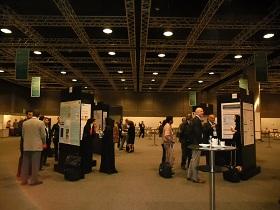Using AI to control energy for indoor agriculture
30 September 2024
Published online 30 August 2012

With several Islamic states competing to build state-of-the-art laboratories and recruit the best researchers, questions of bioethics in Islam and regulatory frameworks for research have been widely discussed.
The Supreme Council of Health (SCH), established by an Emiri decree in 2009, has established permissible policies for stem cell research in Qatar.
"We put together sets of regulations and policies to be followed by anyone doing biomedical research in Qatar," says Faleh Ali, assistant secretary general for policy affairs at SCH. "The principle of SCH policy is responsible and scientifically worthy stem cell research."
From a religious position, some Muslim scholars believe embryos develop souls at conception. However, the majority view supported by the Muslim World League is that this happens 120 days after conception. The SCH's policy stipulates that research on human embryonic stem cells is permissible if they are obtained from in vitro fertilisation and are not viable or are surplus to requirements. The eggs must be voluntarily donated and not be older than six days. Those cells which fit the criteria must not be used for commercial purposes.
The Qatar National Research Ethics Committee has approved the SCH stem cell policy, which will be made a legislative mandate. "This in turn could be adopted by GCC [Gulf Cooperation Council] and MENA [Middle East and North Africa] countries," Ali adds.
The SCH also permits the use of human adult stem cells, human-induced pluripotent cells, cord blood and placenta cells and cells from accidental miscarriages for research.
The ethical issues of stem cell research have been clearly addressed in Islam.
A Saudi Arabian bioethics committee was established by royal decree in 2002. Abdulaziz Alswailem, who sits on the National Committee of Bioethics at the King Abdulaziz City for Science and Technology (KACST), states that the Islamic framework for bioethics was based on four guiding principles and five working principles. "The four guiding principles are human dignity, being God's servants, [the idea that] God has placed the universe at our disposal and we are caretakers of the universe," he explains.
The five working principles are protection of religion, preservation of life, protection of life, preservation of mental faculties, and preservation of wealth.
"Necessities take precedence over needs and needs take precedence over wants," he says, noting that rules may be bent or broken concerning necessities and needs.
According to Alswailem, embryonic cell research is prohibited in Saudi Arabia. However, Aida Al Aqeel of Riyadh Military Hospital contradicted this during a presentation at the Qatar International Conference on Stem Cell Science and Policy, held last February. She emphatically commented that "a fatwa by the Union of Islamic Scholars was embraced by King Abdullah. There is no problem with using human embryonic stem cells (hESC) provided they are from a legitimate source."
While Qatar does not allow human cells to be grown specifically for research, Aqeel said that this was a permissible source for research cells in Saudi Arabia, as long as they are obtained from a permissible source.
Hatem Al Karanshawy of the Qatar Faculty of Islamic Studies notes that "Islam has always encouraged science, and research in Muslim countries in stem cell science has been taking place for a while. The debate of conservatism, of Muslim scientists not moving forward, only exists because this research is not communicated."
"Research and experiments in induced pluripotent stem cells and mouse and human embryonic stem cells are being conducted in the Middle East, whether here at Weill Cornell in Qatar [WCMC-Q], in Saudi Arabia or in Iran," says Jeremie Tabrizi, a geneticist at WCMC-Q. "This is because the ethical issues of stem cell research have been clearly addressed in Islam."
doi:10.1038/nmiddleeast.2012.125
Stay connected: